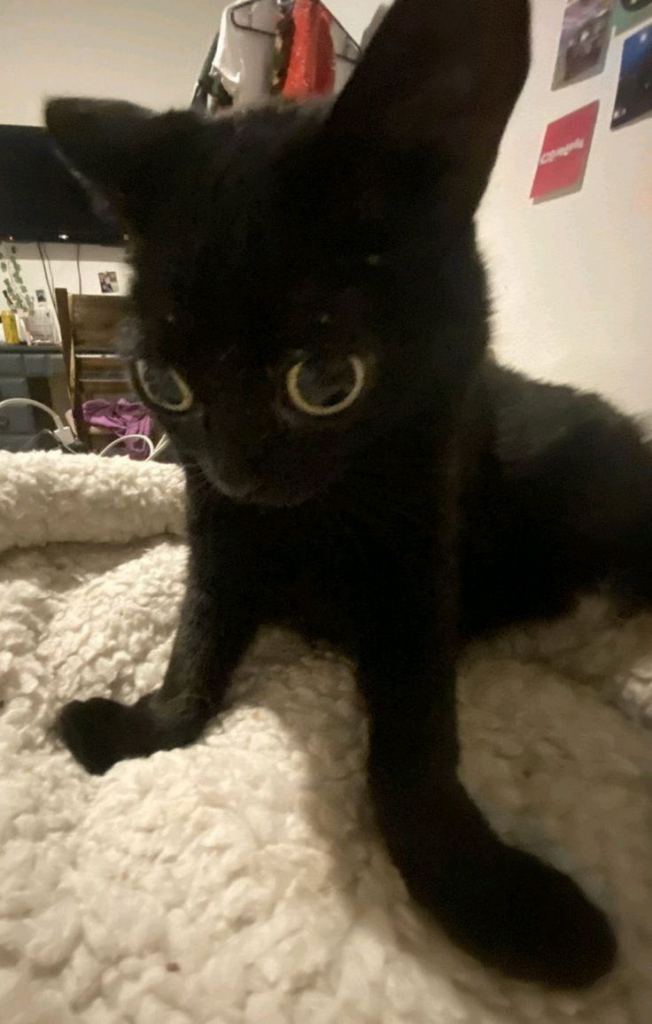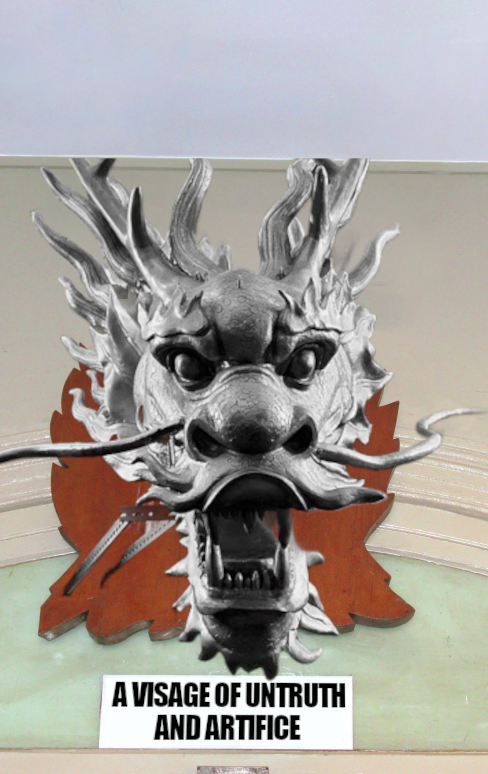A 14-minute nosedive:
- Mum – Here Be No Dragons: What’s been happening since her last fantasy escapade;
- Wyrd Sisters’ Theatre Scene: The dialectic of Esme Weatherwax;
- Simulacra and Simluation – Or, “The Part of This Post That Mum Will Read on Holiday;”
- An Exercise Bike for the Mind: What I gave her for Mother’s Day.
…Sup. Haven’t posted in a while. I’ve been up to my eyeballs researching and writing for an assignment. Some of it looked like this:
https://brologue.net/2024/12/06/chessworld-annotated-bibliography/
Much of it looked like this:
https://brologue.net/2023/11/04/zettelkasten-an-antidote-for-boring-notes/
https://brologue.net/2023/12/26/my-spines-as-stiff-as-a-prosthetic-leg/
And I looked like this:

At the moment, though I’m writing for another assignment, I’d lack to pick up the slack around here. I’m feeling a lot like this:

Mum – Here Be No Dragons (permalink)
As of writing, the Sunday before last was Mother’s Day in the UK. Last time I wrote about Mum, it was about her fantasy problem – she is a self-described realist:
https://brologue.net/2023/11/05/fantasy-for-mums/
Now, she’s got no problem with fantasy, the genre, per se. Her problem, she told me the other day, is that she can’t immerse herself in fantasy. She tried watching Game of Thrones, thinking it was a period drama; she checked out when dragons started turning up.
She won’t watch GoT, because it’s about a place, people, and creatures that aren’t real. She has watched all of Outlander, because, even if the characters in the show are fictional, and even though time travel isn’t possible, everything is firmly planted on Planet Earth.
Past Me never really did answer that question directly – “What would I want in fantasy, if I were a Mum?” – because Past Me didn’t even diagnose the problem.
But he did leave that all-important measure:
Anything pertaining to the fantastical and or supernatural [is] a no-go. Be there dragons, aliens, masked and costumed men, or wizards, she’ll have no truck with it.
This is an issue that we can explore through the suspension of disbelief; secondary worlds; and simulacra and simulation.
In his essay, “On Fairy Stories,” J. R. R. Tolkien wrote that for one to immerse themselves in fantasy, one must imagine the fantasy as a secondary world where what we are shown is possible:
https://coolcalvary.com/wp-content/uploads/2018/10/on-fairy-stories1.pdf
The storymaker proves a successful “sub-creator.” He makes a Secondary World which your mind can enter. Inside it, what he relates is “true:” it accords with the laws of that world.
For the hard of fantasy, that’s not an easy bridge to cross – and one could argue that us fantasy writers don’t make it any easier. As a genre, over the last 150 years, say, we’ve developed a set of assumptions about what our readers expect. Chances are, if I wrote a high fantasy epic with all the trimmings, I’d expect my readers to know and accept the plausibility of dragons in that world.
What defines Tolkien’s theory also limits it. Things that happen in the fantasy world that cannot possibly happen in ours must be taken with utmost seriousness by the reader:
There is one proviso: if there is any satire present in the tale, one thing must not be made fun of, the magic itself. That must in that story be taken seriously, neither laughed at nor explained away.
Mum does not take the magic seriously. But that doesn’t mean she can never get into fantasy. After all, we already know she likes Outlander. And she can immerse herself within stories. For example: she refused to watch A Thousand Blows because it was billed as being incredibly violent. She’d empathise too much with the characters on-screen getting hurt.
Paradoxically, one way the hard of fantasy might be coaxed into a story is to explicitly draw attention to a ridiculous premise. Have a character introduce it from their POV, and slowly explain how this one weird thing affects their life. This way, the character becomes an audience surrogate.
This is how I approached the protagonist of my first Boardmier story. Courier B2-1, a human given no name because of their caste, can time-travel – but not in the way they expect!
https://brologue.net/2024/12/05/the-talisman-of-aubaum/
While Courier B2-1 doesn’t outright call it absurd, they do actively question the nature of this uncontrollable power, comparing it to what they know to be true in stories:
Strolling at a leisurely pace, the Courier figured it took as much time for a pot of rice to boil, and yet, even when they wormed through the desert, on their belly, they always returned to find that little time ever passed for everyone else. Duration halted – but time marched on. It wasn’t like in stories, where time slowed like diluting a pint of beer in a lake; things kept going like they were borrowing beer from someone else’s pint entirely.
That was Roy’s strangest euphemism. “Gift” triggered images of those time-travel stories again – those made-up mé féiners, indulging themselves in paralysed spacetime, like being in a real-life painting. They’d witness life, en vivan, as gods, en vitro, and all they could do was exclaim – “Wow! People actually live here!”
That was more a “gift” than reality…
And, when they find out that their recipient is a(n in-universe) fictional character:
Captain Groenback was a spook for rich kids. It was ridiculous: a magical golden ghost ship looting vessels of their earthly possessions, circling the archipelago forever without hope of a port, looting unwisely crews, who were then cursed by the same fate.
(Of course, in-universe, Captain Groenback was a real person – she was erased from history by becoming a legend. Legends are tricky things – you always learn if the people in the story were real after the fact.)
Here’s the thing – we’ve been telling ourselves stories since before we wrote stuff down. In the absence of anything better to do, when prehistoric humans sat around the fire, we described to each other images beyond our earthly reality – things too good to be true. Because it was fun.
The late, great Sir Terry Pratchett reminds us of what the first stories probably were about:
Guys sitting around the campfire telling each other stories about the gods who made lightning, and stuff like that. They did not tell one another literary stories. They did not complain about difficulties of male menopause while being a junior lecturer on some midwestern college campus.
https://www.goodreads.com/quotes/9654148-o-you-re-quite-a-writer-you-ve-a-gift-for-language
I might be talking completely out of my ass, and an anthropologist might know better, but wouldn’t the whole point of telling stories about those gods be the extraordinary premise?
Either way, Tolkien’s proviso – Thou Shalt Not Desecrate My World of Fantasy – is the very edifice that Pratchett’s Discworld shattered into a million pieces. Daniel Luthi explores this is in an essay on Discworld as a ‘postmodern playground’:
https://dc.swosu.edu/cgi/viewcontent.cgi?article=1036&context=mythlore
Even in the earliest Discworld novels, which were more heavy on parodying fantasy literature, Pratchett was never afraid to break the immersion of his world to tell a joke.
Discworld is self-aware. It knows that you know it’s ridiculous. It agrees. Pratchett was never afraid to take the piss out of the world that he created. His footnotes are often a way for the narrator to take you aside and make fun of the new piece of Lore that’s just been introduced:
The idea that Winter could actually be enjoyable would never have occurred to Ramtop people, who had eighteen different words for snow.*
*(All of them, unfortunately, unprintable.)
Wyrd Sisters, pp. 88-9
Talking of Wyrd Sisters, there’s one scene in my mind that sticks out as pure Mum. I must break into a new section…
Wyrd Sisters’ Theatre Scene (permalink)
Our three protagonists – Esme ‘Granny’ Weatherwax, Gytha ‘Nanny’ Ogg, and Magrat ” Garlick, all witches – go to see a play. It’s touted as a professional production, but Pratchett frames everything as though it were a Punch and Judy show – just sacking curtains and planks of wood laid over barrels. And yet:
[The theatre] had also managed to become The Castle, Another Part of the Castle, The Same Part A Little Later, The Battlefield, and now it was A Road Outside the City.
Granny Weatherwax watches a king being murdered in the play, and calls bullshit:
“He’s killed him,” she hissed, “Why isn’t anyone doing anything about it? […] right up there in front of everyone!”
Magrat grounds her fellow witch to limited success. The next scene in the play is a long soliloquy by the murderer, and how he’s filled with so much regret:
Granny was not to be distracted. “What’d he go and kill him for, then?”
Nanny Ogg jumps in as the mediator:
“I reckon,” she said slowly, “I reckon it’s all just pretendin’. Look, he’s still breathing.”
[…]
The corpse tried to shuffle its feet behind a cardboard bush.
But Granny’s one of Discworld’s sharpest minds. She doesn’t need Nanny’s comments to know the charlatans on stage are ‘purveyors of untruth and artifice.’ In a later scene, the actor playing the dead king fills the role of a soldier. Granny calls bullshit once more, and looks for the actor who previously played the murderer (presumably he’s in a different garb – maybe he isn’t.):
“He done it!” she shouted triumphantly, “We all seed ‘im! He done it with a dagger!”
Things don’t just stop there, though – no, no, no. It’s a well-known fact on Discworld that Witches can go wherever they like. The three of them head backstage…
“You!” [Granny Weatherwax] shouted. “You’re dead!”
That, he was. And there, after a fake bush meets a Lancre steel-capped boot and bursts into splinters, she exposes the lie to the world at large:
“See?” […] “Nothing’s real! It’s all just paint, and sticks and paper at the back.”
At first, you might think this whole affair ridicules the sorts of hackneyed scenes that are ONLY (and I repeat, ONLY) possible in entertainment. One example soaps have been leaning on since we could put phones in our pocket:
If your character is going to be killed off, you WILL show the viewer their forgetting to charge their phone, and it WILL run out of juice when they need it most.
https://brologue.net/2023/11/05/fantasy-for-mums/
But when you think about it, Granny Weatherwax, in her own abrasive way, critically (and literally) deconstructs the secondary world that the production asks the audience to believe.
How did Mum prove to Dad that dragons aren’t real? She googled for dragons and found their Wikipedia page:
https://en.wikipedia.org/wiki/Dragon
For the same effect, she could’ve looked up some behind-the-scenes videos of the actors flailing in front of a greenscreen. None of it’s real.
Simulacra and Simulation – Or, “The Part of This Post That Mum Will Read on Holiday” (permalink)
So, what’s all this simulacra and simulation business, then? When we see a White Walker or a dragon on-screen, what relation do they have to our reality? That is: what does Mum mean when she says a dragon isn’t ‘real?’
I’ll start with something that reflects the real world, one-to-one: a photograph. If you’re looking for a place to eat while abroad, you’re most likely going to look at the unedited photos of food by previous patrons to know what you’re getting into. If you can trust that the photo hasn’t been edited at all, then it’s as true a reflection of reality as we might get.
A step up from that, we might take photos from the business with a grain of salt, because, if they’re not edited, they’re at least trying to show the business in a manner that doesn’t reflect real life. Mum and Dad experienced this first-hand last year: they booked a hotel based on very clean-looking photos, only to find their real room in squalor.
Another example might be cleaning your home for an estate agent to take photos. The state of the house in these photos does not reflect the tidiness of our day-to-day lives, because they are intended for potential buyers for whom this might be their ‘forever home.’ They don’t want to see or imagine the dirt that life tracks around the house. That comes later.
One step further, we get a bit abstract. People say where there’s smoke, there’s fire. But consider the role of a smoke alarm. It’s essentially a stand-in for the fire, to alert you to a danger and get you to stop whatever it is you’re doing before that imaginary danger becomes real.
On the final step, there be dragons. Except, not really. No human being has ever seen a living, breathing dragon, in the flesh. There is no way for such dragons to appear before us, right now. We made them up.
Similar could be said of dinosaurs. They, too, aren’t ‘real.’ True, we have a trove of fossil evidence that proves they existed millions of years ago. But there’s zero chance that Mum will get to see a living, breathing Velociraptor in her lifetime. The dinosaurs depicted in Jurassic Park are just as unreal2 as any dragon.
These last couple of examples are what the philosopher Jean Baudrillard called ‘pure simulacra’ – things beyond our reality that are nonetheless imposed upon it:
https://media-studies.com/baudrillard
There are four orders (or levels) that we can group simulacra into, to define just how far removed they are from the ‘real world:’
- the sacramental order, where reality is reflected;
- the order of maleficence, where reality is masked;
- the order of sorcery, where elements of reality are missing;
- pure simulacra, where there is no relation to reality.
The smoke alarm warns us to a fire that does not yet exist, and is an example of sorcery; the real estate photos cover up the dirt and grime of daily life, and so are of the order of maleficence; assuming no prior editing by the photographer on Tripadvisor, their meals are as true a reflection of reality3, in that moment, as we can find.
So, let’s put ourselves in Granny Weatherwax’s shoes, as nemeses of untruth and artifice. When the king is killed in the play, we’re in the order of sorcery. The events on stage point to something that appears real, but isn’t. After all, the actor playing the king hasn’t literally been killed.
By this definition of sorcery, we can say the same for every scene we’ve ever watched on film or television where someone gets shot. As I’ve written before, Mum can immerse herself when it’s a police drama. She is able to imagine herself as an onlooker in these scenes that she breathes sharply when someone gets hurt – but not so immersed as to run to call for an ambulance.
Immersing herself when it’s a fantasy, then, is a matter of practice. And I think I’ve made a breakthrough…
An Exercise Bike for the Mind (permalink)
The question is no longer, “What would I want in a fantasy if I were a mum,” but instead, “What book do I give Mum to train her fantasy muscle?” When I discovered Discworld in 2022, I thought I was onto a winner with the Witches novels. And maybe I was. If Mum had had the time to read them, I would’ve found out by now.
Before Mother’s Day this year, I was enlightened by a certain fantasy book I had to read for a Creative Writing seminar. I say ‘fantasy,’ but magic realism prefers to be called as it is – fantasy with a 9-to-5 job. I gave Mum a story of an emperor, and his guest, an explorer who’s travelled many thousands of miles to see him:
Kublai Khan does not necessarily believe everything Marco Polo says when he describes the cities visited on his expeditions…
Kublai Khan is enraptured by these idyll cities, as though they were the refractions of a ray of light shone through a prism. He escapes his crumbling, stagnant empire into these smaller worlds – and though he struggles to imagine and build his own imaginary cities at first, he learns soon enough.
Marco Polo reveals that every city he talks about is just a part of Venice, but that doesn’t rob them of their magic. No. Fantasy’s not always about what’s added to the real world – sometimes it’s about what’s taken away.
What does Mum think of Italo Calvino’s Invisible Cities? Well… she read about twelve pages on the plane before falling asleep. Twelve pages of fantasy that she didn’t read before. She may not be able to go to Discworld yet, but she’s training the muscle that can.
TTLY…
- [Mar 7] Cruel and Unusual Packaging https://brologue.net/2024/03/07/let-my-dreamies-go/
- [Mar 19] Fifteen Million Tooters https://brologue.net/2024/03/19/you-create-something-like-inward-tooting/
- Image: Doug butler and Yu Sheng (Roger) Wu, CC-BY-SA 4.0 ↩︎
- ‘Unreal’ in the sense that they were either computer-generated images, or animatronics. Consider, also, that at the time Jurassic Park was released, it was not yet discovered that velociraptors were feathered. For a real velociraptor, get back to me when science has figured out how to transport cameras back in time. ↩︎
- Yes, natural and artificial lighting can make food look better or worse, but for the sake of my model, I’m ignoring those factors. ↩︎
